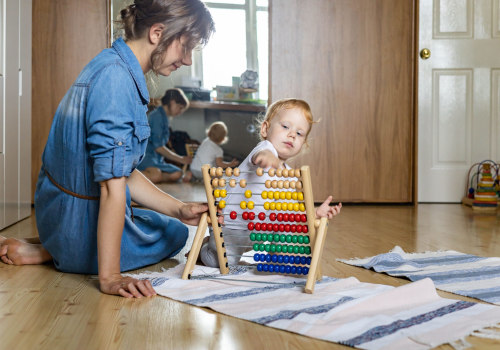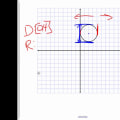Are you a parent looking to help your child excel in algebra? Look no further than this comprehensive guide on modeling with algebra. As part of our Silo on Algebra practice and exercises and real-world applications, this article will cover all the essentials you need to know. From basic concepts to advanced techniques, we have got you covered. Whether you are a math whiz or just need a refresher, this guide will provide you with the tools and knowledge to support your child's learning journey.
So sit back, relax, and get ready to dive into the world of modeling with algebra. Let's make math fun and accessible for both you and your child. The key to excelling in algebra is practice and understanding the fundamental principles. In this section, we will cover tips and techniques for solving algebra problems, including breaking down complex equations into smaller, more manageable steps.
For example, when solving an equation with multiple variables, it may be helpful to isolate one variable at a time and substitute it back into the original equation. This not only helps with understanding the problem but also makes it easier to check your work. Additionally, we will provide practice exercises and worksheets that cover various algebra concepts, from basic operations to more advanced topics like quadratic equations. These exercises can be used to reinforce what your child is learning in class or as extra practice at home. It is important to encourage your child to work through these exercises on their own, as this will help build their confidence and independence in solving algebra problems. Finally, we will discuss a comprehensive curriculum for learning algebra that covers all the necessary topics in a logical and structured way.
This can be used as a supplement to what your child is learning in school or as a complete self-study program. We will provide recommendations for textbooks, online resources, and other materials that can aid in your child's understanding of algebra.
Mastering Real-World Applications
When learning algebra, it's important for students to not only understand the basic concepts and equations, but also how to apply them to real-world situations. This is where the true mastery of algebra comes into play. By mastering real-world applications, students can see the practical uses of algebra in everyday life. This not only helps them solidify their understanding of the subject, but also makes it more interesting and relevant. Some common real-world applications of algebra include budgeting and financial planning, calculating distances and rates, and solving problems involving proportions and percentages. To help your child master these real-world applications, encourage them to think critically and creatively.Ask them to identify situations in their daily life where algebra can be applied, and work through the problems together. Additionally, there are many online resources and apps available that provide real-world practice problems for students to solve. These can be a fun and engaging way for your child to improve their algebra skills while also gaining a better understanding of how it can be used in the real world. By mastering real-world applications of algebra, your child will not only excel in their math classes, but also develop problem-solving and critical thinking skills that will benefit them in all aspects of their life.
Finding the Right Tutor
When it comes to finding a qualified algebra tutor for your child, there are a few key factors to consider. Here are some tips to help you select the right tutor:- Qualifications and Experience: Look for a tutor who has a strong background in mathematics and specifically in algebra. They should have experience teaching students of your child's age and grade level.
- Teaching Style: Every student learns differently, so it's important to find a tutor who can adapt their teaching style to best suit your child's needs.
Some students may benefit from a more hands-on approach while others may prefer a more traditional lecture style.
- Communication: It's important for the tutor to have good communication skills and be able to explain concepts clearly and effectively. They should also be able to provide progress updates and communicate any concerns or areas for improvement.
- Availability and Flexibility: Make sure the tutor's schedule aligns with yours and that they are willing to work with your child on a consistent basis. They should also be open to adjusting their approach if needed.
And don't hesitate to seek out a qualified algebra tutor if your child needs additional help.











